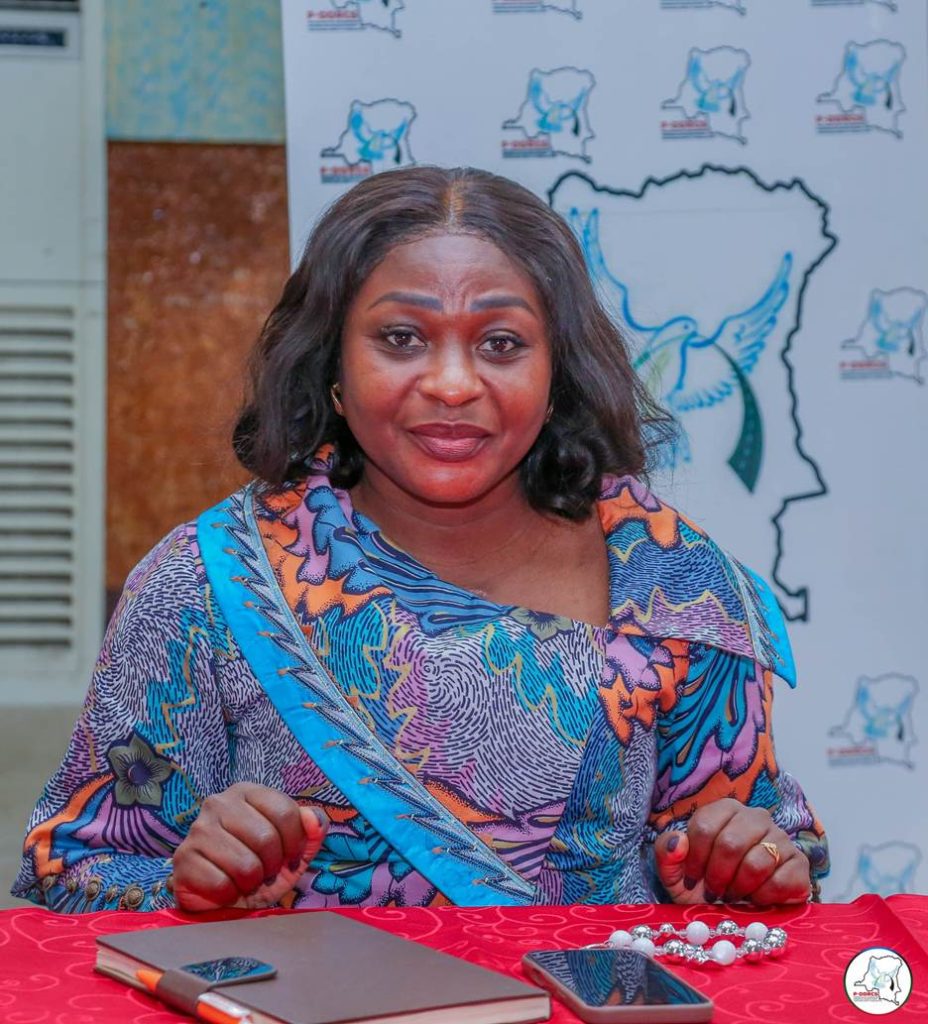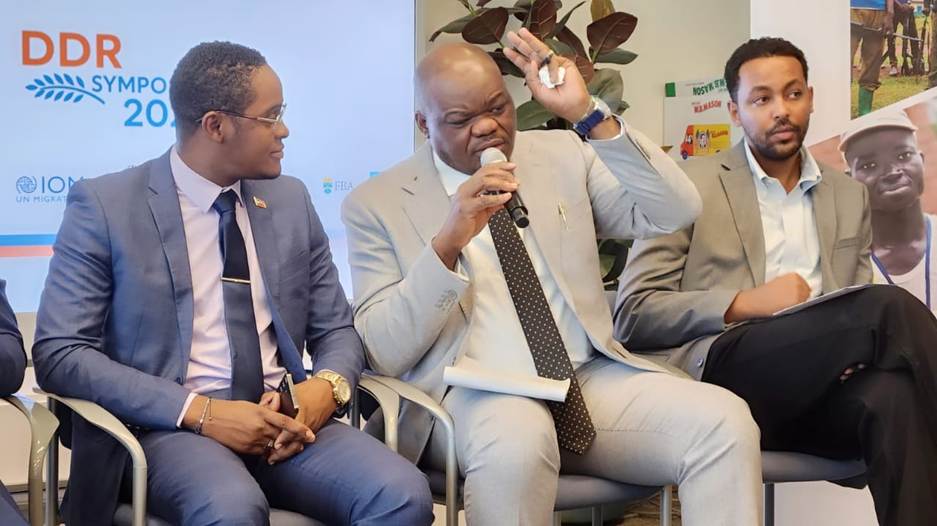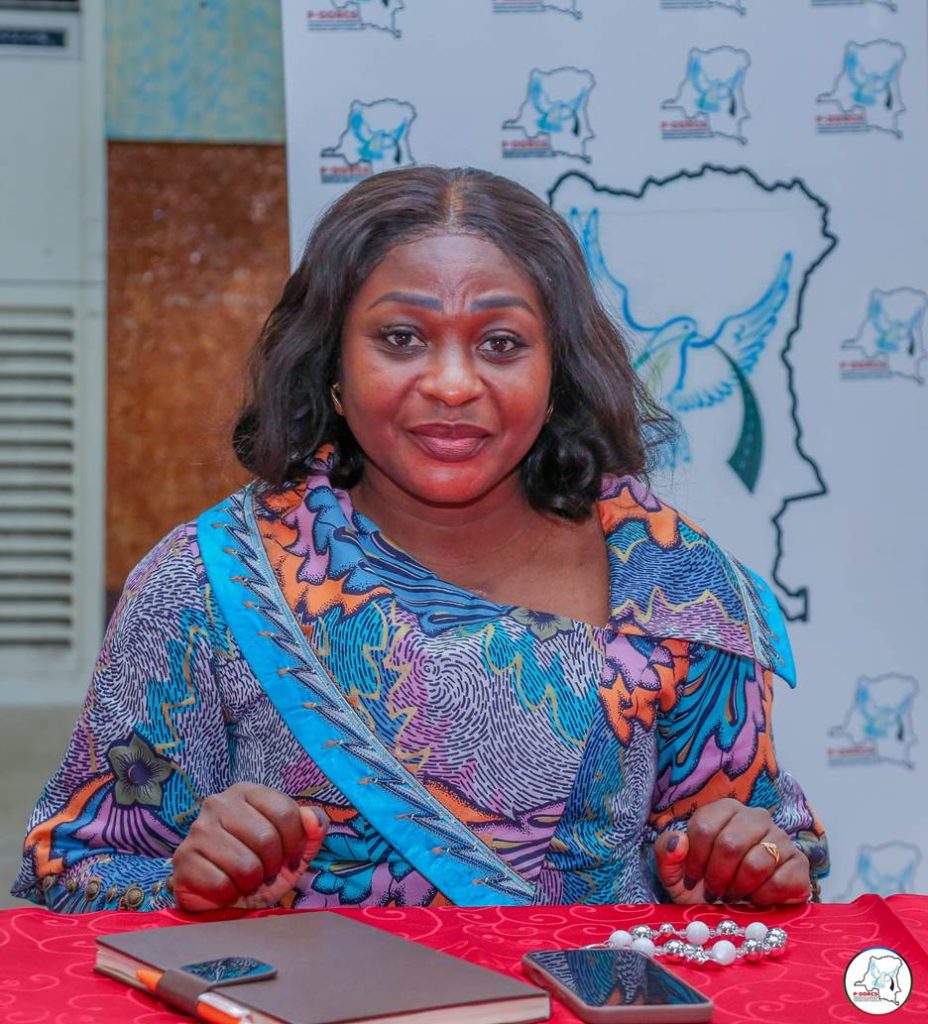KINSHASA: P-DDRCS PRESENTS ITS GENDER POLICY AT THE WOMEN FOR PEACE CONFERENCE MARKING 25 YEARS OF UN RESOLUTION 1325

Kinshasa, October 29, 2025 — As part of the national commemoration of the 25th anniversary of United Nations Security Council Resolution 1325, the Democratic Republic of Congo held a high-level Women for Peace Conference, organized in partnership with MONUSCO and UN Women. The event brought together women leaders from across the country, including former ministers, activists, academics, members of the military, UN representatives, and provincial delegates. Their shared objective: to assess progress made since the adoption of Resolution 1325 and to define priority actions to strengthen the role of women in peace and security processes.
The National Program for Disarmament, Demobilization, Community Reintegration and Stabilization (P-DDRCS) actively participated in the conference. Representing the program’s leadership, Marie-Chantal LUMBA TSHIMANGA, Deputy National Coordinator for Technical and Operational Affairs, attended the sessions, alongside Ms. Lauren MUNTU KINTADI, Head of the Gender Unit of the P-DDRCS, who delivered a presentation of the P-DDRCS Gender Policy.
This policy is grounded in a clear and strategic principle: no peace can be sustainable without the full, equal, and meaningful participation of women at all levels and throughout every phase of the peace process. The P-DDRCS Gender Policy reflects the program’s commitment to mainstreaming gender equality across all its pillars—from disarmament and demobilization to reintegration and community stabilization.

In her address, Ms. MUNTU outlined the key objectives, guiding principles, and implementation mechanisms of the policy. She emphasized that gender is not a marginal concern, but a core element of the program’s governance and field operations. The policy promotes not only equal access for women and girls to resources, services, and decision-making spaces, but also recognizes them as active agents of change, not passive beneficiaries.
Today, women hold several key leadership roles within the P-DDRCS, both at the central and provincial levels. This includes senior operational responsibilities such as the Deputy National Coordinator, Provincial Coordinators, and department heads. Ms. MUNTU also stressed the program’s focus on addressing the specific needs of demobilized women and girls, including protection from gender-based violence, access to psychosocial support, and sustainable economic empowerment.
The Gender Policy sets a minimum target of 30% women’s participation in all P-DDRCS activities and decision-making structures, with the ultimate goal of reaching full gender parity. It also promotes the concept of positive masculinity, aligned with the national vision of President Félix Antoine Tshisekedi Tshilombo, a recognized continental Champion of gender equality and inclusive governance.

Ms. MUNTU affirmed that the implementation of the Gender Policy is fully supported and driven by the National Coordinator, Professor Jean De Dieu Désiré NTANGA NTITA, who considers gender equality a critical lever for sustainable peace, human security, and national reconstruction.
The presence of the P-DDRCS at this landmark event reaffirmed its alignment with the Women, Peace and Security agenda, while demonstrating how national institutions can serve as vehicles for transformative gender-responsive action. The week of the 25th anniversary of Resolution 1325 served not only as a moment of reflection, but as a launchpad for renewed momentum—towards a future where peace is not only inclusive but visibly shaped by the leadership of women, supported by institutions like the P-DDRCS that are committed to turning principles into practice.
Communication Unit-P-DDRCS



